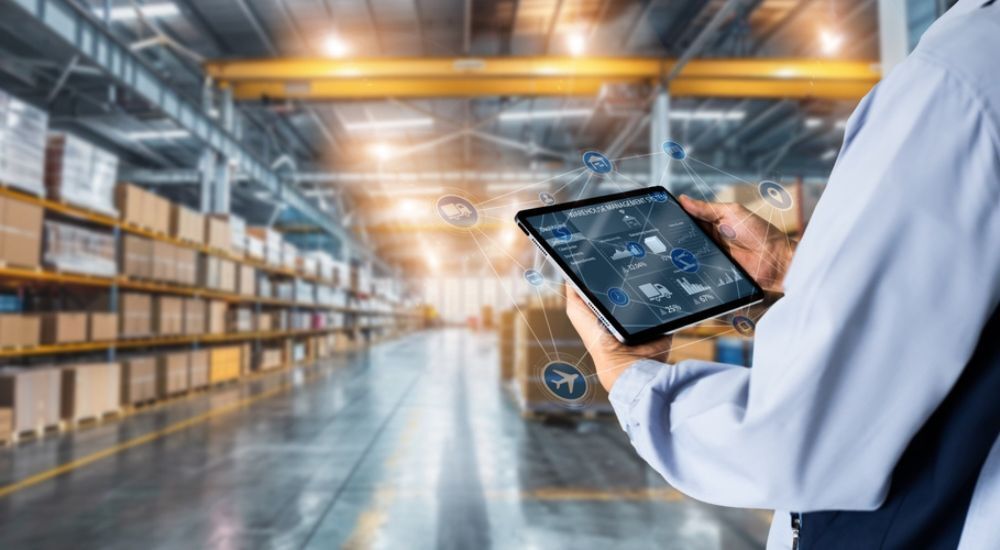Nearshoring to Mexico and incentives boost industrial demand
17/12/2024Logistics activities have become one of the main factors driving industrial occupancy within the framework of nearshoring to Mexico.
The logistics market of Mexico City and its Metropolitan Area is the largest in the country, with 8.9 million m², according to the report "3PL Logistics in Mexico City" by CBRE.
The vacancy rate of 2.3% indicates that demand remains high and the industry is expanding. This is also reflected in the construction of new spaces, which reaches 1.1 million m².
The reasons? The explosion of e-commerce seen since the 2019-2020 contingency, the ongoing relocation of companies, and also Mexico's fiscal incentives to attract foreign investments.
Nearshoring to Mexico: Key incentives to attract companies
- Manufacturing, Maquiladora, and Export Services Industry Program (IMMEX): Provides associated companies with the ability to temporarily import goods for production purposes, with exemption from general import tax, Value Added Tax (VAT), and compensatory fees, as applicable.

Source: Mexican Ministry of Economy
- Sectoral Promotion Programs (PROSEC): Allow imports at preferential tariffs for companies producing items for the manufacturing of specific goods for:
- Electrical industry
- Electronic industry
- Mining and metallurgical industry
- Agricultural machinery industry
- Pharmaceutical products, medicines, and medical equipment industries

Source: Mexican Ministry of Economy
Non-tariff measures for foreign trade
-
1. Import permits
The Eighth Rule of the Ministry of Economy applies preferential tariffs to the import of inputs and machinery for the production and assembly of goods.
-
2. Certificate of Origin
A document granting preferential treatment to exports covered by international treaties signed by Mexico.
-
3. Quotas
Serve as a measure that establishes limits on the export and import of certain goods, defining whether in specific cases the transaction permit will be granted upon payment of a tariff.
Regional investment incentives
The document "Fiscal Incentives for Investment" from the Ministry of Economy establishes measures aimed at boosting the establishment of investors and activities in different regions of Mexico. It includes:
-
1. Isthmus of Tehuantepec Interoceanic Corridor
This strategic project involves the rehabilitation of 308 kilometers of railways to connect the Pacific and Atlantic Oceans at the ports of Salina Cruz and Coatzacoalcos (in Oaxaca and Veracruz, respectively) and 10 development hubs to attract investments.

Source: Mexican Ministry of Economy
>> You might be interested: Can the interoceanic corridor give short-term answers to boost industries? <<
-
2. Yucatán
With the already inaugurated Mayan Train project, 1,460 kilometers of railways in Yucatán, Quintana Roo, Campeche, Tabasco, and Chiapas have been enabled to drive the development of southern Mexico.

Source: Mexican Ministry of Economy
To encourage investments, the hubs that are part of the project are subject to measures such as:
- Accelerated depreciation of investments during the first 6 years.
- Exemption from VAT payment for 4 years for operations within or between the hubs.
- A 100% discount on Income Tax for the first 3 years of operation.
The fiscal incentives apply to activities in industries such as:
- Electrical and electronic
- Semiconductors
- Automotive
- Medical devices
- Pharmaceutical
- Agribusiness
- Clean energy generation and distribution equipment
- Machinery
- Information and communication technologies
- Metals
- Petrochemical
-
3. Northern and southern borders
In border states, there are benefits related to tax credits associated with VAT and Income Tax, reducing payment rates.

Source: Mexican Ministry of Economy
-
4. Chetumal free zone
The state offers tax incentives to companies that trade specific goods and services, according to established tariff fractions. It includes:
- Machinery and equipment
- Pharmaceutical products
- Construction materials
- Automobiles' repair and maintenance
-
5. Export industry incentives
An immediate Income Tax deduction ranging from 56% to 89% is available for investments in new fixed assets acquired between October 12, 2023, and December 31, 2024. This applies to:
- Semiconductors
- Electrical and electronic equipment
- Parts for automobiles, trains, ships, or aircraft
- Pharmaceutical industry
- Instruments for measurement, control, and navigation
- Medical equipment
- Engines for cars, vans, trucks, and aircraft
- Batteries and accessories for electrical installations
- Non-electronic equipment for medical use
- Human and animal food
- Fertilizers and agrochemicals
-
6. R&D
For research and development of technology, a tax credit equivalent to 30% of expenses and investments applies to Income Tax for projects aimed at products, materials, and production processes representing scientific or technological advances.
Regarding investments, a 50% deduction is in effect for acquiring machinery for the manufacture, assembly, and transformation of magnetic components for hard drives and electronic boards for computing equipment.
-
7. Electric vehicles and automotive sector
For investments in power supply equipment for electric vehicles, a tax credit equivalent to 30% of Income Tax applies to these investments.
The New Automobile Tax is exempt for the import and sale of new electric, hybrid, or hydrogen-powered vehicles, as well as for the definitive export of automobiles.
To promote activity in the automotive industry, there are incentives for establishing light vehicle manufacturing plants, provided that:
- An initial investment of $100 million has been made.
- Assembly or armor activities are carried out under license from original manufacturers.
- Production facilities exist, and more than 50,000 vehicles are already being manufactured annually.
In such cases, companies can:
- Obtain bonded warehouse arrangements under the terms of the Customs Law.
Bonded warehouse is a customs regime in which domestic or foreign goods are temporarily stored in a location authorized by authorities without immediate payment of foreign trade taxes or compliance with other regulations such as permits or specific procedures. Goods remain under customs control until:
1. They are destined for the domestic market (imported).
2. They are exported to another country.
3. They undergo a change in customs regime.
- Automatically register for the Automotive and Auto Parts Industry Sectoral Promotion Program.
- Offer vehicles for government tenders as if they were domestic manufacturers.
- Import vehicles tariff-free from countries with which Mexico has no trade agreements, under established terms.
In line with various investment-attracting incentives within the framework of Mexican nearshoring and the growth of sectors such as automotive and logistics, Frontier Industrial offers industrial buildings for lease and industrial land for sale in industrial parks located in the country's most important industrial regions.
If your company is looking for the ideal space to establish operations in Mexico, don't hesitate to contact us.





